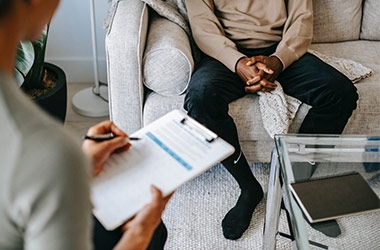Wittenborg Online News!
'Praktisch Advies': Mental Health Services in the Netherlands
'Praktisch Advies': Mental Health Services in the Netherlands
'Praktisch Advies': Mental Health Services in the Netherlands

Everybody Needs Help Sometimes – Practical Advice
Your time at Wittenborg is meant to be fun and exciting. As you embark on a new academic journey – perhaps in a new country – you should be enthusiastic at the prospect of overcoming novel challenges and connecting with those you meet. We hope you are able to reflect fondly on your time here once you have left as an intellectually empowered graduate, ready to take on the world.
However, during your stay, some of you will inevitably struggle with issues that are difficult to explain to other people. You may need follow-up services for mental healthcare you received in your homeland. Perhaps after coming here, you have started to feel melancholic due to homesickness or stressed out as you enter another life stage. Maybe you have been dealing with certain feelings and habits for a while but have recently found yourself at a breaking point. Recognizing this possibility, Wittenborg has equipped your academic tutors with the knowledge to refer you to the proper professionals.
Finding a 'Huisarts' (GP)
If you are dealing with any mental health problems, you are urged to contact your academic tutor, who will refer you to a general practitioner, known in Dutch as huisarts. Your tutor can also help you figure out how to balance your education with your personal needs. By speaking up and asking for help, you can increase your quality of life and make the most out of your time here. You also do not have to tell your tutor anything about what you are going through, or even that your issue is psychological. You can just say that you would like to be referred to a doctor. In the Netherlands, you must be referred to a mental health practitioner by your huisarts.
If you don’t wish to speak with your academic tutor, you can use this handy tool made by the Dutch Patient Federation to search for a suitable doctor (nota bene: it is best to organise a doctor as soon as possible after you get here, as many locations are full and do not accept new patients). Once you find your match, you will have to make an appointment to give your huisarts an overview of your complaints. If your problems are too complex for them to help with, they will refer you to specialist care, and in some cases will prescribe you medication to alleviate your most urgent complaints.
In a previous article, we discussed the nature of health insurance in the Netherlands. To recap: non-working students on a study visa must take out international insurance from companies like AON or from their own country. Those with a working permit are obliged to take out basic insurance from a Dutch company, such as DSW. Make sure you choose a plan that covers the cost of mental healthcare, so that you are properly taken care of.
Crisis Care
In the Netherlands, you are considered to be in the midst of a mental health crisis when your normal coping mechanisms for everyday life no longer work for you. This can manifest in the form of panic attacks, delusions or threatening behaviour toward oneself or others. If you are experiencing a mental health crisis and already have a huisarts, you should contact them during office hours. They will then contact a local crisis intervention team if necessary. If you do not have a huisarts, or cannot get in contact with them for some reason, you are then urged to contact your local Centrale Huisartsen Post. This is a hub for doctors who work outside normal hours or on holidays.
Those living in Apeldoorn should call the Spoedpost Huistartsen Apeldoorn at 0900-600 9000, while those in Amsterdam should call the Huisartsenposten Amsterdam at 088-00 30 600. You may use these numbers for all non-life-threatening emergencies. Make sure you keep your ID, BSN number and any medical prescriptions nearby when you call. If you live outside of these areas, you can find what you need by searching “Centrale Huisartsen Post + (location)” via Google.
If you or someone you know is at immediate risk of harming themselves, you or they can call Zelfmoord Preventie by dialling 113, or 0800-0113. Are you not comfortable speaking over the phone? You can also use the chat feature on the Zelfmoord Preventie website. If you need help in your native language, you may use this website or this website to find services from your home country. In extreme cases, you may need to contact the Dutch general emergency services via the number 112. You can use this number for all emergency services, including the police, fire brigade or medical services.
As you study at Wittenborg, make sure to look out for one another, and reach out to those you feel may be struggling. A strong social support network is essential to one's wellbeing. If you sense a person is self-isolating, check in with them from time to time; it's better to be annoying than apathetic. We hope you found this article sufficiently informative.
WUP 18/09/2022
by Olivia Nelson
©WUAS Press
866 words